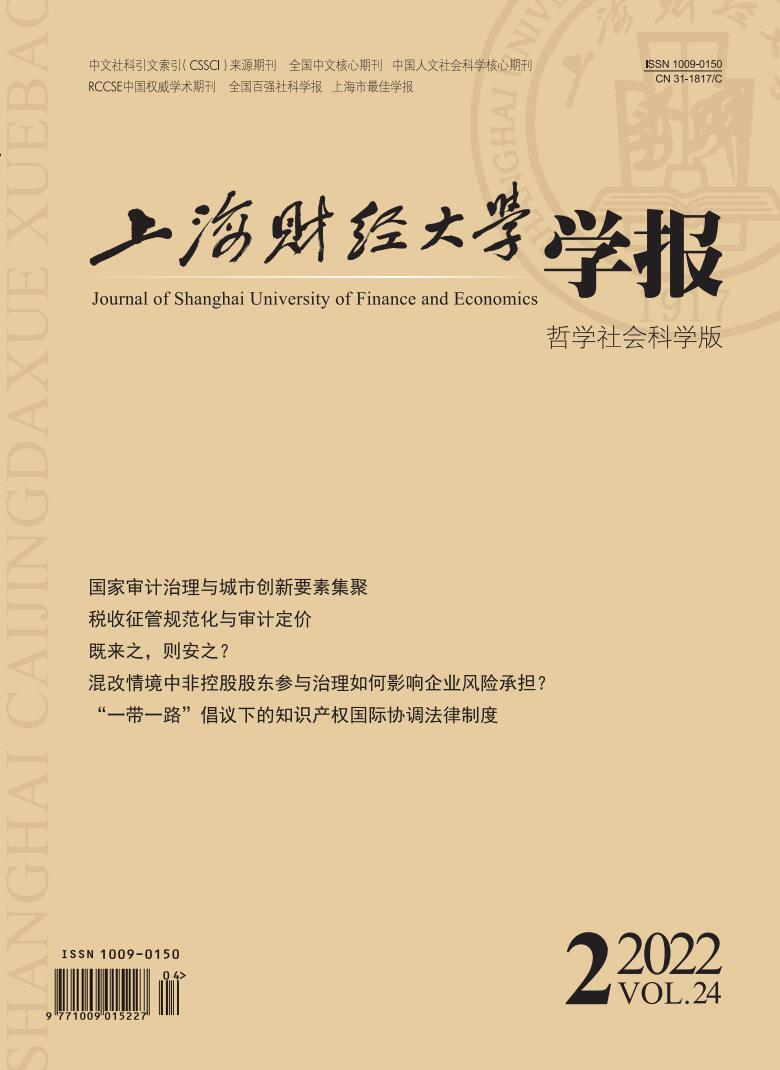Under the background that western developed countries have dominated rules of international trade for a long time, and have used intellectual property as an instrument to further widen the development gap between the North and the South countries and made the global economic development more unbalanced, promoting the international coordination of intellectual property among countries participating in the “Belt and Road” Initiative is one of the core tasks to realize the international cooperation of the rule of law. At present, there is no formal, complete and operable legal system for the international coordination of intellectual property under the framework of the “Belt and Road” Initiative, and the coordination activities that have been carried out are not systematic, so the future coordination system needs to be designed from blueprints. Meanwhile, cooperation in the field of intellectual property is faced with the realistic challenges of great differences in intellectual property protection and legislation among participating countries, and the lack of motivation of the least developed country to participate in international coordination. Constructing the international coordination legal system under the framework of the “Belt and Road” Initiative is of profound historical significance and value. It can be the institutional guarantee by reducing conflicts and risks and promoting China’s leading technology to “go out”; it can meet the requirements of realizing the idea of “a community of shared future for mankind” under the principle of “consultation, contribution and shared benefits”; it is the link for developing countries to cope with developed countries’ strategy of “forum shifting” and unite developing countries to fight against unreasonable “TRIPS-Plus” standards; and it is an opportunity for China to display its image as a “responsible great power” and enhance its discourse power in the global-governance of intellectual property, which makes it an important practice of reconstructing the global-governance system of intellectual property in the 21st century. To achieve this goal, a coordination framework on all levels should be constructed step by step; the path of international coordination should be constructed from “within the region” to “across regions”. China, as the author of the “Belt and Road” Initiative, should actively facilitate the match-making function, contribute Chinese wisdom and prescriptions, lead the South-South cooperation and North-South cooperation of intellectual property under the framework of “Belt and Road” Initiative, and eventually form a complete and operable multilateral coordination mechanism of intellectual property, to realize the intercommunication in the field of intellectual property. At last, it can truly support the construction of the “Belt and Road” Initiative, achieve common prosperity, provide a model for international coordination in other fields under the framework of the “Belt and Road” Initiative, and eventually achieve the goal of reconstructing the global-governance system of intellectual property in the 21st century and even promoting the global rule of law.
 / Journals / Journal of Shanghai University of Finance and Economics
/ Journals / Journal of Shanghai University of Finance and EconomicsJournal of Shanghai University of Finance and Economics
LiuYuanchun, Editor-in-Chief
ZhengChunrong, Vice Executive Editor-in-Chief
GuoChanglin YanJinqiang WangWenbin WuWenfang, Vice Editor-in-Chief
International Coordination Legal System of Intellectual Property under the “Belt and Road” Initiative
Journal of Shanghai University of Finance and Economics Vol. 24, Issue 02, pp. 122 - 136 (2022) DOI:10.16538/j.cnki.jsufe.2022.02.009
Summary
References
Summary
Cite this article
Ma Zhongfa, Wang Yueyue. International Coordination Legal System of Intellectual Property under the “Belt and Road” Initiative[J]. Journal of Shanghai University of Finance and Economics, 2022, 24(2): 122-136.
Export Citations as:
For
ISSUE COVER
RELATED ARTICLES




 6960
6960  8450
8450

